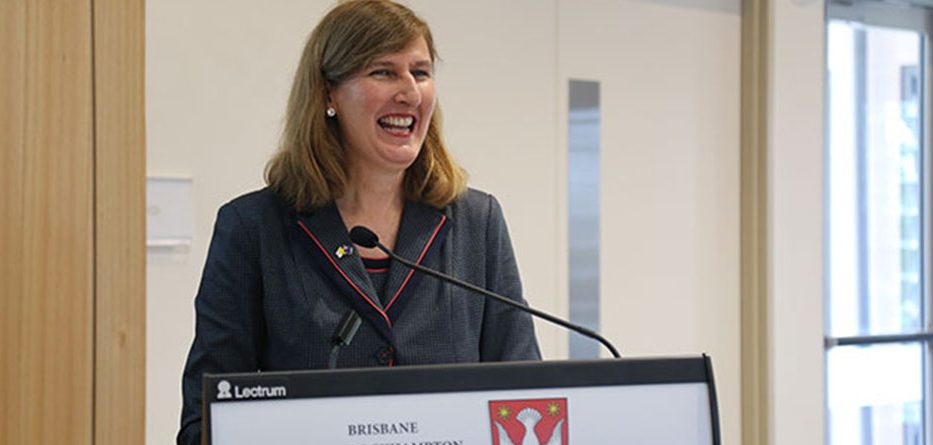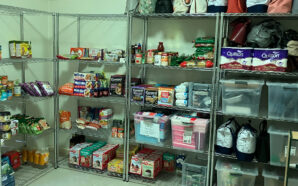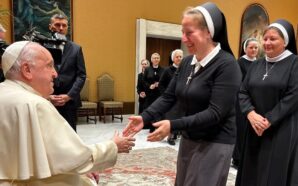AUSTRALIA’S first resident woman ambassador to the Holy See Melissa Hitchman has described Pope Francis’ papacy as a “unique moment in history”.
“He is willing to dialogue on issues that the Church has previously not been prepared to do,” Ms Hitchman said at the start of a mid-term tour during which she will be speaking with Australian Catholic leaders and agencies and reporting on progress during the first half of her three-year posting.
The head of Australia’s resident mission to the Holy See, Ms Hitchman said Pope Francis had a clear message to send, and was not afraid to be “the voice of the voiceless” on issues such as migrants and refugees, climate change, and even some of the more controversial issues facing the international community.
“He’s showing a courage, and values-based leadership,” Ms Hitchman, a Catholic herself, said.
Ms Hitchman described an historic set of circumstances linking Australia and the Holy See.
“I’m delighted to be there at this moment in history,” she said. “It is a great congruence with our foreign policy and the Holy See’s policy, which is only limited by imagination and resources.
“Australia and our partners in the international community have much in common in terms of service to humanity and the global commons, and so we are able to partner with him (Pope Francis) in a way that maybe we aren’t with other global leaders in the world today.
“He is making a difference, and populations are looking for that leadership, someone who they can turn to who can articulate a sense of values. And we are delighted to be able to work with him on that.”
RELATED: Australian Ambassador’s work to eradicate modern slavery
After briefing the Federation of the Catholic Bishops Conferences of Oceania, Ms Hitchman flew to Brisbane, where she spoke to clergy and seminarians at the Holy Spirit Provincial Seminary, Banyo.
“I have come directly from the Oceania bishops’ conference in Port Moresby … and I was the only woman in a room of about one hundred men there, and I think if I did nothing else, I achieved that,” she said. It was part of a speech, in which the career diplomat and mother described her efforts to lift the profile of Australia’s Holy See mission, encourage the participation of women and promote indigenous culture.
Introducing her speech, Brisbane vicar general Monsignor Peter Meneely said he believed it was the first time an Ambassador to the Holy See had officially visited the archdiocese, let alone the seminary.
Ms Hitchman acknowledged that most Australians knew little about Australia’s diplomatic mission in Rome.
She described her day-to-day work brokering high-level meetings with members of the Curia, networking to obtain vital information, and promoting Australian interests in the heart of the Church.
“Our job as diplomats is to shape and influence and to seek outcomes,” she said.
Ms Hitchman has promoted the interests of the Australian Catholic University, which offers short-course scholarships and exchanges for students at its Rome campus, and supported projects with Caritas Australia and Catholic Health Australia.
And she has hosted indigenous artist Deborah Cheetham, and launched the Australia Catalogue during Reconciliation Week at the Vatican Anima Mundi Museum.
Ms Hitchman also described how early diplomatic aspirations to break through the “glass ceiling” within the Department of Foreign Affairs and Trade, had now come to fruition.
One of her assignments as a trainee diplomat had been to prepare and deliver a hard-edged speech to improve her public speaking.
“We had about nine per cent of women as heads of mission – you couldn’t really aspire to becoming an ambassador, and it was never my goal, and secondly we didn’t have a resident mission to the Holy See,” she said.
“I wrote my speech on becoming the first female Ambassador to the Holy See.”
Since arriving in Rome in 2016, Ms Hitchman said she had witnessed “some positive developments” for women working in and around the Vatican.
She said a new group known as “donna in Vaticana” or DIVA now offered women official recognition “that they exist and that their work is valuable and appreciated”.
“It represents the women working in the Vatican, and this group gives them a voice in a way they have not had before,” Ms Hitchman said.
“There are now opportunities for women.
“They have some very educated, intelligent, highly networked women working in the Vatican, advising the Curia … some of them are Harvard Law graduates; they feel a calling to the Church and are using their skills and talents in that way.
“Some of those women in the Vatican are working on issues as diverse as arms control, humanitarian aid and assistance through Caritas, all sorts of areas.“There are so many issues we could be working on and at times we become exhausted trying to cover them all.”
By Mark Bowling.
This story was first published in The Catholic Leader newspaper from the Archdiocese of Brisbane.








